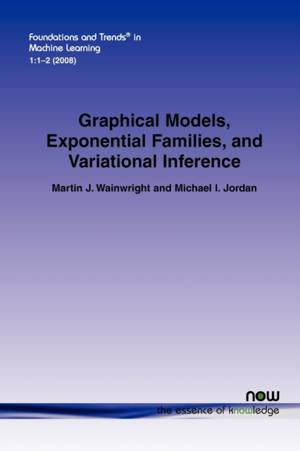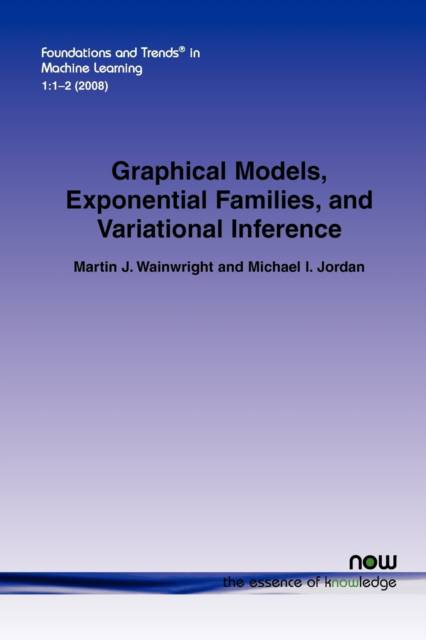
Bedankt voor het vertrouwen het afgelopen jaar! Om jou te bedanken bieden we GRATIS verzending (in België) aan op alles gedurende de hele maand januari.
- Afhalen na 1 uur in een winkel met voorraad
- Gratis thuislevering in België vanaf € 30
- Ruim aanbod met 7 miljoen producten
Bedankt voor het vertrouwen het afgelopen jaar! Om jou te bedanken bieden we GRATIS verzending (in België) aan op alles gedurende de hele maand januari.
- Afhalen na 1 uur in een winkel met voorraad
- Gratis thuislevering in België vanaf € 30
- Ruim aanbod met 7 miljoen producten
Zoeken
Graphical Models, Exponential Families, and Variational Inference
Martin J. Wainwright, Michael I. Jordan
€ 138,45
+ 276 punten
Omschrijving
Working with exponential family representations, and exploiting the conjugate duality between the cumulant function and the entropy for exponential families, this book develops general variational representations of the problems of computing likelihoods, marginal probabilities and most probable configurations.
Specificaties
Betrokkenen
- Auteur(s):
- Uitgeverij:
Inhoud
- Aantal bladzijden:
- 324
- Reeks:
Eigenschappen
- Productcode (EAN):
- 9781601981844
- Verschijningsdatum:
- 15/12/2008
- Uitvoering:
- Paperback
- Afmetingen:
- 234 mm x 157 mm
- Gewicht:
- 548 g

Alleen bij Standaard Boekhandel
+ 276 punten op je klantenkaart van Standaard Boekhandel
Beoordelingen
We publiceren alleen reviews die voldoen aan de voorwaarden voor reviews. Bekijk onze voorwaarden voor reviews.









